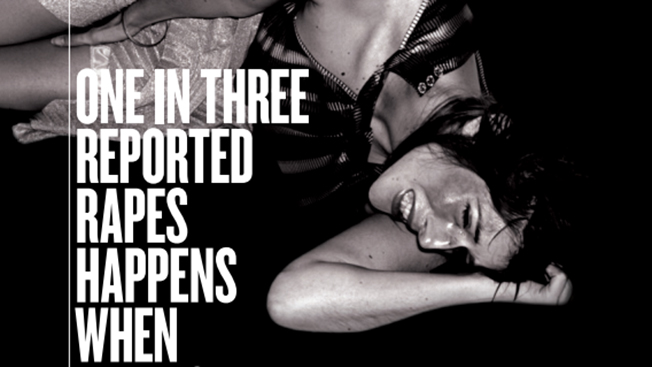England's National Health Service recently recycled a rape prevention campaign poster first used between 2005 and 2007, featuring the line "One in three reported rapes happens when the victim has been drinking" over a black and white photo of a woman in distress. Well intentioned as it may have been, the poster makes the now-tired mistake of shifting blame for rape onto the victims. So one Twitter user decided to do something about it.
The original poster.
User @neverjessie "fixed" the poster, shifting the blame back to where it belongs: the perpetrators of these pre-meditated crimes. @neverjessie's revised version of the poster reads: "Three in three reported rapes happen when someone decides to commit rape."
While the original poster's intention was likely to help prevent rape by raising awareness, suggesting the connection to alcohol does shift blame back to the victims of sexual assault. As @neverjessie put it in a blog post addressing the poster, "by correlating the incidence of rape with the victim's sobriety it implies that the victim was complicit in it by not doing everything in their power to avoid it. It reinforces and validates the belief that women are responsible for avoiding rape, and, therefore, responsible for anything that might happen, also."
The blog Hello Giggles likened the campaign to posters on the Vancouver Skyline reading, "Not reporting sexual assault is the real shame," a misguided and insensitive attempt that places the burden, once again, on the victims of sexual assault, attempting to combat the cultural shame leveled on many victims by shaming them into reporting their attackers. In both cases the real problem—rape culture and the misogynistic notion that men have the right to women's bodies—is side-stepped, placing the burden on victims to protect themselves. Some may argue that this is the only preventative method to address the issue, but a Scottish campaign, entitled "This is Not an Invitation to Rape Me" shows that there is a better way.
Hey, NHS, I fixed your poster. pic.twitter.com/xbCCfySYRg
— neverjessie (@neverjessie) August 1, 2014








